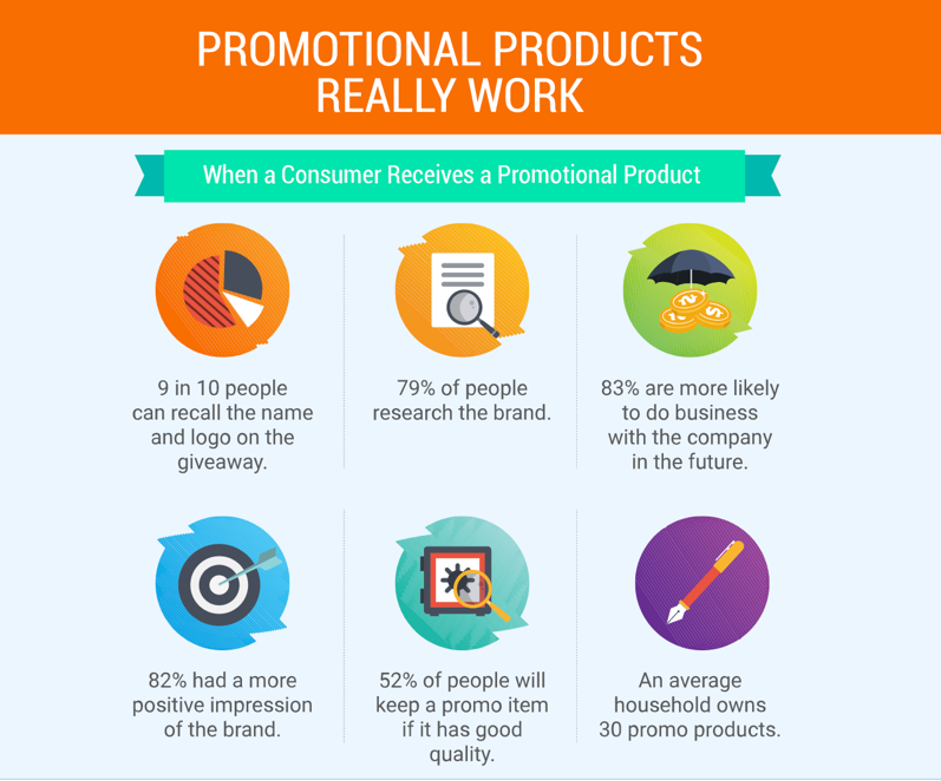Everyone craves validation, including today’s consumers. Your patients are no different.
According to one study, the percentage of patients who leave a practice due to provider indifference currently hovers near 70%, which means no healthcare organization can afford to let their patients go unrecognized.
A One Dimensional Research survey found a full 87% of consumers are inclined to tell someone else about a good customer experience. (That translates to more than eight of ten patients who could be spreading the word about your practice for you.)
If you want some fresh ideas for keeping your patients happy, we’ve compiled a list of seven methods for letting your clients know you care by practicing patient appreciation.
1. Put well wishes in writing
When your birth date is randomly mentioned in conversation, do you have the urge to shout, “Hey! That’s my birthday!”
Yeah.
Birthdays occupy a unique space in that they’re specific to the individual. Your patient’s birthday is something that’s wholly theirs: instantly identifiable with who they are. And when you acknowledge a patient’s birthday, you’re signaling they’re innately special.
A birthday greeting in the form of a written card, voicemail, text, or social media shoutout—unless their profile indicates they’re birthday averse, of course—can be an essential building block for a longstanding doctor-patient relationship. (Who doesn’t like a practitioner who wishes them well on their big day?) Bonus points if you can offer a small token included with the message like a coupon or a free birthday screening.
Can’t remember when a patient’s birthday is? Utilize your patient CRM (more on this below) to double-check the date or to schedule a personalized message ahead of time.
And don’t just stop at birthdays. Interpersonal gestures like the handwritten “thank you” note are a simple way to demonstrate how much you value your patient’s time, energy, and humanity.
Plus, such gestures can even promote better health. One study from Kent State University uncovered the mere act of reading a “thank you” letter can boost immune systems, combat negative emotions, and lead to fewer health issues overall.
2. Get used to “social” interaction
As of 2021, 72% of the adult U.S. population admits to using social media in one form or another. So, if you’re looking to reach out to patients and make them feel “seen” by your practice, social media is an obvious place to start.
But be careful. Social media outreach toes a very fine line between “endearing” and “stalkerish.” Always make sure you have permission to engage through social media platforms and remember to be mindful of HIPAA and other privacy regulations as you go.
If you’re looking to make patients feel “seen,” social media is an obvious place to start.
Appropriate ways to show your patients some appreciative love on social media include:
- Invite patients to participate in raffles or giveaways on your profile page.
- Set up a Twitter or Instagram poll for patient social media followers and ask for opinions on anything from waiting room décor to office staff scrub colors (a fun and easy way to let patients know you care what they think).
- Ask a specific patient if you can spotlight them on your profile feed as a “practice success story” or if you can give them a public high five on a personal milestone like a graduation or the arrival of a new grandchild.
3. Offer discounts and referral rewards
Think back to the last time you were compelled to make a purchase because a coupon popped up in your inbox.
Discounts are instantly alluring and have the power to improve sales “across the board” (i.e., beyond the discounted service itself). In addition, an exclusive discount can feel like a mini-gift just for the consumer, as if they’ve been inducted into a special club.
Any discount you extend to a loyal patient (in celebration of their first 10 visits, say) shows you’re keeping track of their own personal patient journey. It also shows you appreciate their ongoing business enough to give them a financial “break,” as it were. This helps distinguish them from their fellow patients and highlights their individual history within your practice––yet another indication you value them for who they are, not what they spend.
Your clinic can also leverage exclusive discounts as a reward to help grow your practice. For example: Consider taking a certain percentage off standard procedures for (1) existing patients who’ve referred you to their friends and (2) new patients who’ve scheduled an appointment as a result. This suggests to both parties you’ve adopted them into your practice’s extended circle of friends, a move that helps humanize your relationship with patients, encourages more bookings, and perhaps, even more referrals.
4. Give fun stuff away
The stats on giveaways are too numerous to list in their entirety and too good to ignore. But of the many advantages free gifts can provide, perhaps the most impressive is this: 83% of consumers are more likely to do business with you again if you give them a freebie.

A gift is the ultimate gesture of esteem. By presenting your patients with the occasional gift, you’re demonstrating an altruistic commitment to improving their day, even if it’s just by a small gesture.
Free promotions can come in a variety of packages: from functional swag to tasty, indulgent treats. Still, aim for something meaningful first and foremost. If you can ensure your patients will use the gift more than once, great. If you can display a memorable logo on the item, so much the better. But it’s a good idea to begin with something that conveys an impactful message (even if that message is just “Thanks for being you”) and then work from there.
Gifts that tie in to the patient’s day-to-day activity and help promote better health habits can amount to a double win. A bag of locally sourced granola or a gift certificate to a yoga studio can put a smile on your patient’s face and expose them to a healthier routine, which can both improve patient morale.
5. Involve other businesses
Your clinic is part of a larger community, meaning when those around you are allowed to thrive, your business stands to thrive as well.
Bearing this in mind, it might be time to engage in some communal codependency.
Most patients are likely to work, eat, shop, and/or play near their doctors’ offices. And, as we’ve already established, consumers love free stuff. It follows, then, that you can up the patient appreciation ante by offering free gifts or exclusive promotions with businesses outside your doors. Think smoothie shops, toy stores (particularly if you’re a pediatric clinic), or sports gear outlets.
Even better? You can ask outside businesses to return the favor by providing a free health consultation with purchase (or something similar). This can instantly expand your networking efforts and keep your communal ecosystem alive and well.
6. Give back where you can
Compassion should be the driving force behind any practice. Consequently, your patients should be able to sense the compassionate motivation behind everything you do.
One very tangible way of expressing empathy on a broader scale—so your patients can recognize it in action—is to give back through charitable donations. A regular contribution, no matter how modest, can serve as a touchstone for how dedicated you are to the well-being of others. Patients are likely to see your charity as a reflection of how invested you are in them and how committed your clinic is to their continued health. (Or, in other words, how much you appreciate them.)
You can even take this concept one step further by involving your patients in the donation process more directly. Try offering them the option to donate part of their payment to a charity of their choosing, a charity selected via a monthly poll, or a non-profit associated with the time of year (examples: breast cancer research funding for October or “Movember” donations for men’s health awareness in November). This effectively gives patients all the credit, gifting them with the “good karma” of knowing they’ve helped someone in need.
7. Make it personal
This is the most important tip on my list…
84% of consumers consider being “treated like a person” a primary factor in securing their business, according to Forbes. And, as we wrote about in a previous article on personalization in healthcare marketing, the humanity factor stakes are bound to get even higher when dealing with patients as opposed to casual customers.
But let’s forget about marketing for a second. In the spirit of giving, without the hope of receiving (at least not immediately), you should always express appreciation for your patients by getting to know them.
Your CRM can be enormously helpful. A HIPAA-compliant CRM platform will allow for patient profiling and segmentation along demographic lines (such as age, location, and family medical history). Your team can then employ this info to:
- Foster a practice-wide culture of compassionate personal contact. Small conversations that show you remember your patients as well as their respective likes, dislikes, life-changing events, etc., can go a long way toward making a patient feel validated. (Some scientific studies suggest even the use of a patient’s name at the right moment can stimulate a positive neurological response.)
- Invite patients to informative seminars or movement classes that correlate to their age (“Marathon Training in Your 40s”), location (“Safety Tips for Your County’s COVID Surge”), recurring symptoms (“Low-Cholesterol Cooking”), or any other significant trait.
- Implement a mentorship program (depending on the size of your organization) in which a single member of your team assumes total responsibility for out-of-office interactions with specific patients, offering periodic health tips and personalized recommendations for anything from daily recipes to bedtime reads that support healthful sleep.
- Inspire tiny in-office celebrations for personal achievements, such as a “Congratulations!” banner hung in the exam room for a patient who’s recently completed their Ph.D.
Note that, for some of these examples, digitized intel can only take you so far. Part of the legwork here will require talking to your patients, taking notes, and really listening when they recount personal experiences, confess their hopes and dreams, or make observations unrelated to their medical concerns. These are areas in which compassion and basic human decency will be your best allies.







